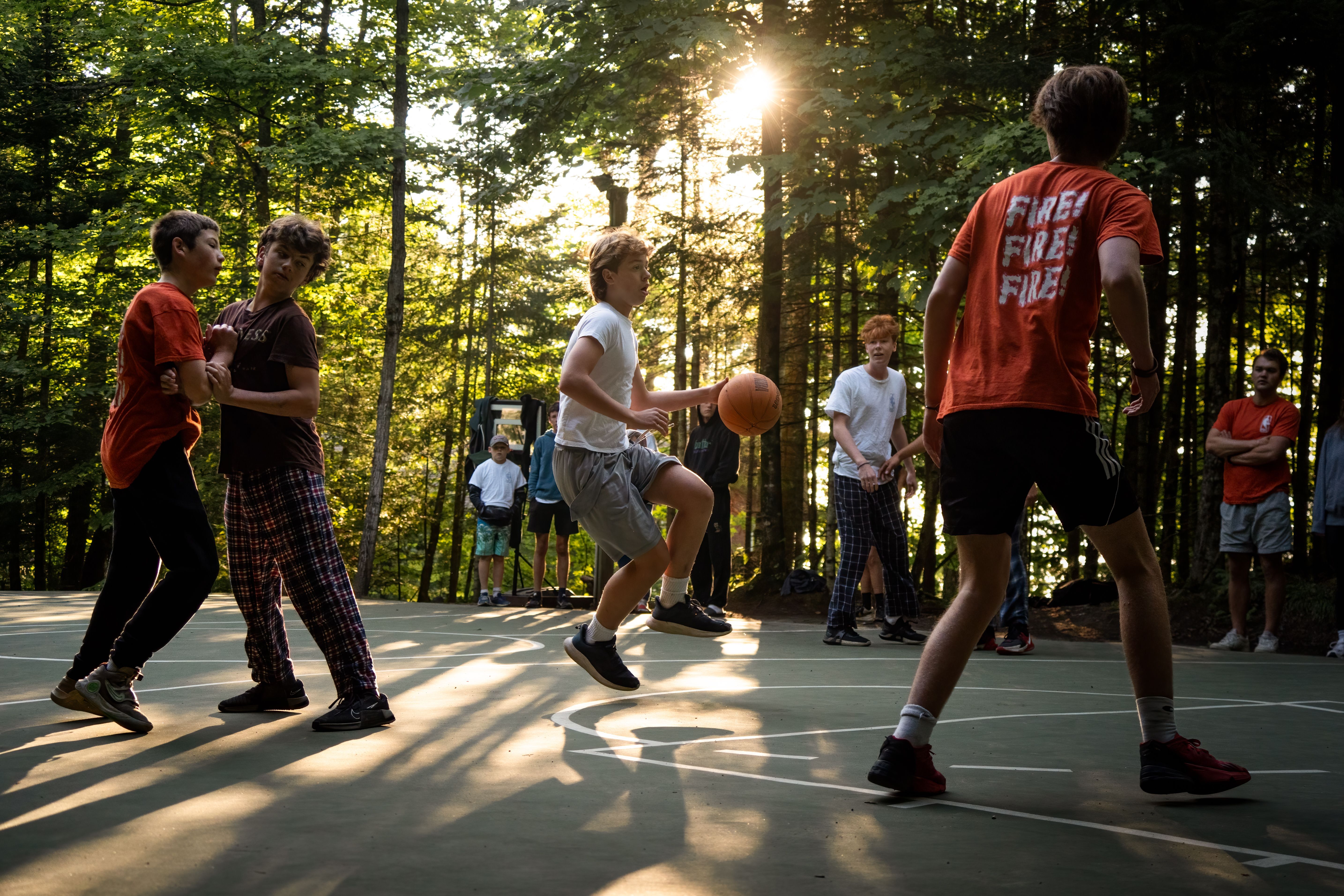
“The adolescent mental health crisis is so urgent.”
A stark warning from Jonathan Haidt in his new book, The Anxious Generation, which delves into the profound impact of technology, particularly smartphones on the upbringing of today’s children. His argument is that pervasive use of digital devices, and the resulting decrease in unstructured play, has paved the way for an epidemic of anxiety, depression and loneliness in youth. These impacts are felt even more deeply by low-income families, such as those that Amici Children’s Camp Charity serves, who often have higher rates of screen time with less supervision.
The “surge of suffering” is how Haidt describes the introduction of smartphones to youth. A direct impediment to play and relationship building that is necessary for children to experience life’s challenges. When children are given the opportunity to play off-screen, they develop resilience and independence, and enjoy time outdoors in nature.
So what does this mean for Amici and the camping community at large? As an organization dedicated to the wellbeing of children from low-income families, we have noticed this rise in anxiety over the past several summers and are determined to do our part to help change the trajectory of youth mental health for the better.
The Anxious Generation outlines several suggestions and interventions that will help kids return to a play-centred and less screen-focused childhood:
- maximizing in-person activity
- providing clear off screen structure to a child’s day
- increasing children’s mobility and boundaries
- allowing children to have more responsibility at home
- encouraging teens to find a part-time job
- fostering opportunities for youth to nurture and lead
- for children to find bigger thrills in nature
It’s hard to ignore that access to overnight summer camp achieves each and every one of Haidt’s interventions.
At overnight summer camp, children leave their smartphones at home, immersing themselves in nature. Haidt notes that children thrive most when they are members of their real world communities and not in “disembodied virtual networks.” At camp, children gain a sense of community and camaraderie among fellow campers, promoting teamwork and interpersonal skills that are essential for navigating real-world relationships. They make real world friendships, learn from their leaders and mentor the campers younger than them. Overnight summer camp plays a critical role in the lives of children, offering them the opportunity to completely disconnect from the technologies that falsely claim to provide the connection they are craving.
Camp also emphasizes activities that encourage physical, often adventurous play, teamwork and social bonding: from tackling the highest element in the high ropes course, to a 24 hour solo, to working together in a camp-wide game of capture the flag.
Camp may be the last technology-free zone for today’s children and youth. At camp, without a phone in their hands, children can rediscover the joys of childhood, forging lasting memories and friendships in an environment that nurtures their physical, emotional and social well-being.
Amici campers experience the joys of camp each summer, with the impacts of their summer camp experience deepening each time they return. Campers come home feeling more optimistic, independent and self confident. Their experiences at camp inform their behaviour at home and help them to reach their full potential.
Thank you for making overnight summer camp a necessary and meaningful part of hundreds of childhoods. You are making a significant difference not only in providing joy and magic to their summers, but in paving the way for success, happiness and health into adulthood.

